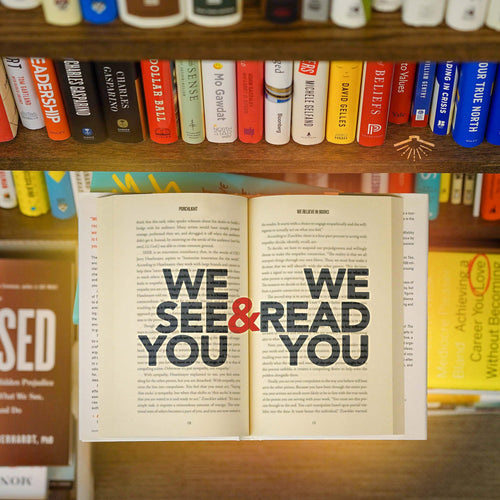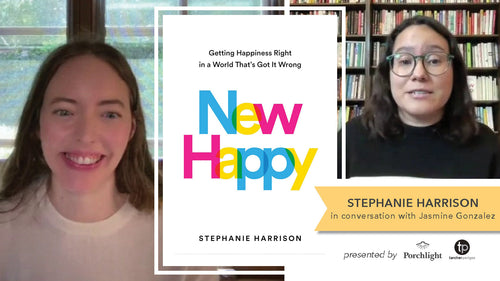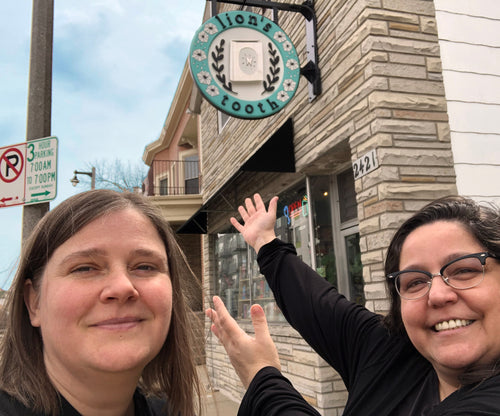We Need Your Art: Stop Messing Around and Make Something
Amie McNee guides readers in recognizing and expressing their creativity in a meaningful and sustainable way.
 We Need Your Art: Stop Messing Around and Make Something by Amie McNee, Penguin Life
We Need Your Art: Stop Messing Around and Make Something by Amie McNee, Penguin Life
I need to admit something: at a recent work meeting, I wasn’t paying as much attention to the presenter as I was to the person sitting in front of me, because I was trying to sketch them. To be fair, doodling has long been my way to stay focused during lectures and meetings, but this time, instead of idly letting my hand produce squiggles on a scrap of paper, I was intently studying the shapes in front of me, focused on reproducing the lines on this person’s crisply ironed shirt. The challenge felt good, and the resulting drawing was surprisingly decent. (And yes, I picked up on everything I needed from the meeting, too.)
I’ve been reading novelist Amie McNee’s new book, We Need Your Art, which no doubt inspired my increased creative dabbling this week. McNee makes an impassioned argument for taking creativity seriously. She briefly highlights the positive effects that creative work can have on a person, such as reduced stress and a renewed sense of connection to others, citing the works of researchers such as Susan Magsamen and Ivy Ross (co-authors of one of Porchlight’s picks of best innovation and creativity books of 2023) to bolster her overarching argument. However, throughout most of the book, McNee fully embodies her role as a creative coach. She emphasizes that what stops most of us from creative work isn’t a lack of time or resources, but rather, our own mental blocks around our abilities and around the perceived value and worth of making art.
McNee writes with a voice that is equally firm yet caring, and often very funny. (The phrase “art is not toaster” may sound like a strange non sequitur for now, but trust that by the time you finish reading this book, it will mean everything.) Art is an ongoing practice, and McNee acknowledges that most readers picking up her book are likely out of practice or stuck in a holding pattern with their current creative endeavors, needing a fresh start. To this end, she offers a two-week reset challenge to help creatives reengage with their art, encouraging creatives to return to the basics of their craft—such as writing only a few words per day, or only playing an instrument for a few minutes at a time—with the intention of making creative work something that can be easily accessed and built upon every day.
Of course, sustained creative work can be mentally and even physically taxing. McNee argues that vulnerability, the willingness to share parts of oneself with others, is the foundation of good art, and she calls upon artists to lean into their sensitivity. But tapping into such emotions also requires rest and plenty of compassion for oneself. When we share our creative works with others, we open ourselves up to failure and rejection, but also to social connection and joy. McNee covers the common obstacles artists face, such as perfectionism and impatience, and offers a clear guide to embracing all the complex emotions and experiences that come with creative work. With reflection prompts at the end of several chapters, this book isn’t just meant to be read, but to be actively worked through and incorporated into one’s creative practice.
Why do we do any of this, in the end? Why subject ourselves to the highs and lows of making art? There’s no singular answer. All I know, for myself, is that every time I make art, whether it’s writing or drawing or even just messing around with a lump of Play-Doh, I feel like the most alive, best version of myself, and in these weird, stressful times we live in, that feels like a good way to live. “Art is your legacy,” McNee writes in the final pages of the book. “When your journey ends, you will leave the world with art, and there is no greater gift.”



